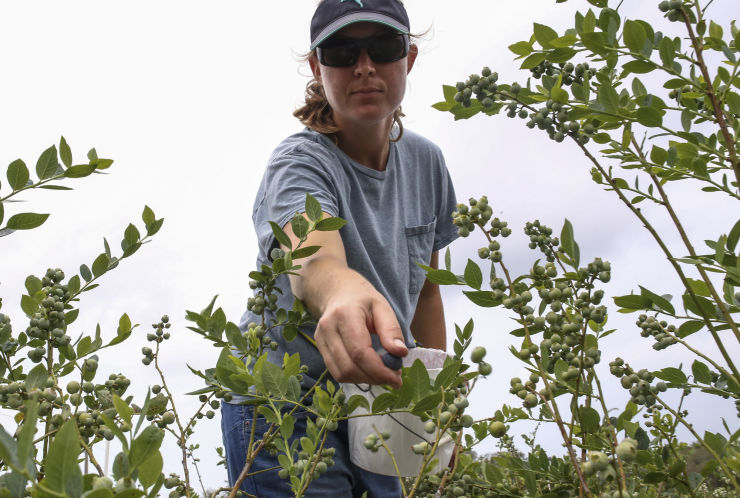The Tasmanian tradition of “pick-your-own” blueberries is in jeopardy as growers try to reduce the spread of a fungal disease in the state.

Farmers are implementing biosecurity measures on individual farms to protect their bushes from blueberry rust, which can be carried on to farms by people.
Grove blueberry farmer Tony O’Connell said “pick-your-own” could pose a risk to farms.
“A lot of growers have pick-your-own and we are one of them, but we have to weigh up whether or not to take that risk,” he said.
Mr O’Connell said the decision would be up to individual farms, and he knew of two growers who had already decided to keep the public and tourists out for the coming season.
He said it would be a shame for tourists, who had grown to enjoy the pick-your-own experience.
He said most of the farmers considering putting a hold on allowing the public to enter farms were the organic growers, which formed the bulk of the pick-your-own market.
Biosecurity Tasmania is conducting workshops to help the state’s $30 million blueberry industry in its fight against blueberry rust, a serious disease that causes plants to lose leaves and die in extreme cases.
Blueberry rust was detected on a North-West property in August last year and has since been found on two nearby properties.
Tasmania’s 80 registered blueberry growers have lobbied for eradication rather than containment of the disease, but Biosecurity Tasmania says eradication is not realistic.
As part of the management strategy, Biosecurity Tasmania is holding workshops around the state to help growers manage the threat on their properties.
Biosecurity Tasmania general manager Lloyd Krumpp said he was satisfied management was the best way forward for blueberry rust, as the disease was not a major threat to productivity.
He said there were three states that would not accept blueberries from infected areas without treatment: South Australia, Western Australia and Victoria.
He said treatment was mainly an issue for organic growers, so the state was negotiating with interstate authorities to allow untreated imports if Biosecurity certified individual farms were free of disease.


